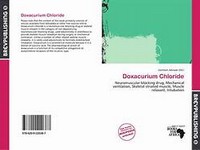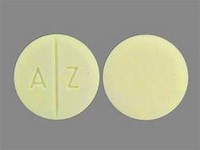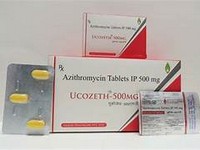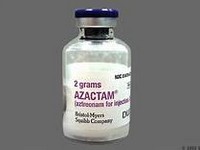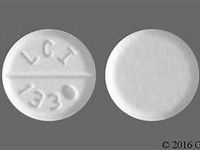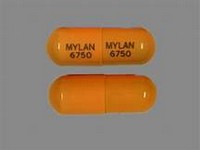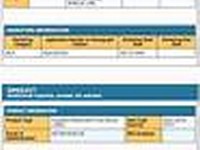Chlordiazepoxide hydrochloride

Chlordiazepoxide hydrochloride
CLINICAL USE
Anxiety (short-term use) Alcohol withdrawal DOSE IN NORMAL RENAL FUNCTION
Anxiety: 30–100 mg daily in divided doses Alcohol withdrawal: 10–50 mg 4 times a day, reducing gradually PHARMACOKINETICS
Molecular weight :336.2 %Protein binding :96 %Excreted unchanged in urine : 1–2 Volume of distribution (L/kg) :0.3–0.5half-life – normal/ESRD (hrs) :6–30/Unchanged DOSE IN RENAL IMPAIRMENT
GFR (mL/MIN)
20 to 50 : Dose as in normal renal function 10 to 20 : Dose as in normal renal function <10 : 50% of normal dose DOSE IN PATIENTS UNDERGOING RENAL REPLACEMENT THERAPIES
CAPD :Unlikely to be dialysed. Dose as in GFR <10 mL/min HD :Not dialysed. Dose as in GFR <10 mL/min HDF/high flux :Unknown dialysability. Dose as in GFR <10 mL/min CAV/VVHD :Unknown dialysability. Dose as in normal renal function IMPORTANT DRUG INTERACTIONS
Potentially hazardous interactions with other drugsAntibacterials: metabolism possibly increased by rifampicinAntipsychotics: enhanced sedative effects Antivirals: concentration possibly increased by ritonavirSodium oxybate: enhanced effects of sodium oxybate – avoidUlcer-healing drugs: metabolism inhibited by cimetidine ADMINISTRATION
Reconstition
– Route
Oral Rate of Administration
–Comments
– OTHER INFORMATION
Active metabolite (desmethyldiazepam) has a half-life of a few days
See how to identify renal failure stages according to GFR calculation
See how to diagnose irreversible renal disease
Home

